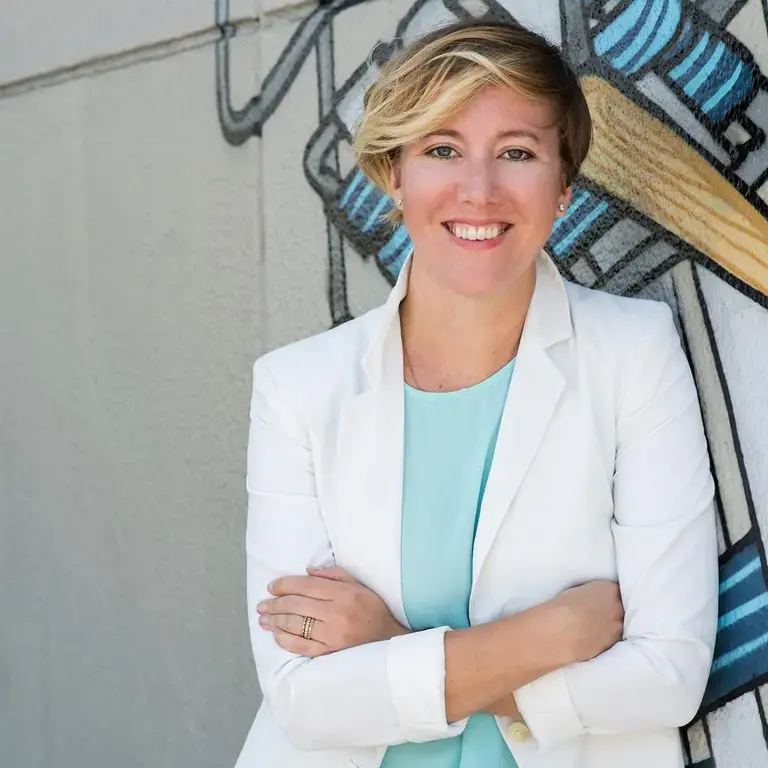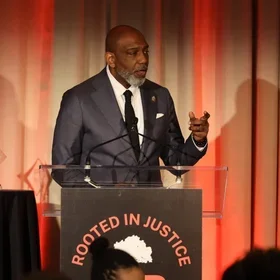Written by Meghaan Lurtz, Ph.D.
Meghaan Lurtz, Ph.D., is a lecturer in the M.P.S. in Wealth Management program at the Columbia University School of Professional Studies. She teaches Financial Psychology, which focuses on the intersection of human psychology and wealth management and the basic elements of consumer behavior. Students will explore all of the biases, behaviors, and perceptions that impact client decision-making and financial well-being. Dr. Lurtz co-authored two chapters in Financial Psychology, a book published by the Certified Financial Planner Board.
Dr. Lurtz is a writer and senior research associate with Kitces.com, a blog dedicated to the practice of financial planning. She has been quoted in New York magazine, The New York Times, and The Wall Street Journal. Dr. Lurtz earned her Ph.D. in personal financial planning from Kansas State University, her M.S. in industrial organizational psychology from Capella University, and her B.A. in psychology, philosophy, and Spanish from Kansas University.
###
What is so magic about asking questions, and why is connecting through questions particularly important for advisor-client relationships?
Last week I bumped into a friend who told me that they were headed to Seville, Spain. Having recently lived in Spain—and having spent a lot of time in Seville—I found myself wanting to share many stories and recommendations. Our interaction went a bit like this:
Friend: I’m so excited. I just booked my tickets to Seville!
Me: Amazing. Spain is the best. Seville is incredible. Do you plan to visit the Plaza de España? You must plan to have lunch at Hotel Alfonso XIII…
At first glance the exchange above probably looks totally normal. I’m excited for my friend and wanted to share my interests with her. The above interaction describes a super common way to connect and interact. Yet it is not the only, or most powerful, way to connect and show interest. Using questions, not storytelling, has greater power. Take a slightly different exchange for context:
Friend: I’m so excited. I just booked my tickets to Seville!
Me: Amazing. Spain is the best. Tell me, what is on your agenda for must-see sights?
In the above exchange, I am still interested. I am still engaged and excited for my friend. Yet this time my interest is singularly focused on my friend and what she is thinking of doing—not a story about what I did.
In the initial exchange, I took the opportunity to, well, talk about me. My intention was to try to help her and ensure that she didn’t miss a tasty meal or a stunning plaza. I did not consciously think, “Hmmm, this is where I talk about me and my Spain trips.” My good intentions aside, her moment of excitement was met with a story about me. I took her moment and made it about me. Conversely, in the second exchange, the concentration stayed on my friend. I showed interest and connection through a question that kept the focus on her and only her.
Consider a question I am asked a lot by students and advisors newer to the wealth management industry: “Do I or do I not disclose information about my financial situation in order to make a client feel more comfortable?” For instance, the advisor talks about the student debt they had to make the client feel more comfortable about their current student debt situation. Disclosure is tricky. Certainly, disclosing about my experience in Spain might not feel emotionally ladened to my friend. But disclosing financial experience is often very difficult. If the advisor admits to having debt, does this make them look like less of a professional? If the advisor discloses that they once had debt and now live totally debt-free, does that make the client or prospect think their advisor is showing off? Disclosing or not disclosing can end in sticky situations.
The disclosure question is a great question; and to understand how asking more questions answers it, let’s first acknowledge that money is emotional. Finances bring up a lot of shame, stress, anxiety, and fear in prospects, clients, and even the advisor. Disclosing could backfire even if the advisor means well and is merely attempting to connect.
Might there be a better way to connect and avoid having the disclosure fall short?
The answer: yes. But use a question instead of a disclosure and keep professionalism, and professional distance, in place. Consider the following two exchanges to hear the difference:
Connecting Through Sharing
Client: Man, I am really feeling a pinch right now. Paying off this debt, I feel like it will never be over. It is crushing me—two steps forward, one step back all the time.
Advisor: Yes, I am still paying off my student debt too. It is so hard. It is difficult to weigh planning for the future and paying off the past. I am right there with you.
Maybe the above exchange is okay, but maybe the client now thinks, “Geez, should I be taking advice from someone who feels at a loss about their own financial situation?” Self-disclosure, as powerful as it can be, can be a double-edged sword in a professional setting. Advisors want to maintain their professional status but at the same time want to connect with the struggling client or prospect. Asking questions might be a better way to do that …
Connecting Through Questions
Client: Man, I am really feeling a pinch right now. Paying off this debt, I feel like it will never be over. It is crushing me—two steps forward, one step back all the time.
Advisor: Gosh, I hear how stressful this is for you. I appreciate your sharing your stress with me. Tell me, what can we accomplish in today’s meeting that would alleviate some of this stress for you or bring you a bit of peace along this journey?
In the exchange above, professionalism remains intact, but so does connection with the client. The advisor could go on to ask other questions about how the client has been coping with stress or what they feel they have made progress on in relation to their debt—or ask other questions about how the advisor can support the client through this time in the client’s life.
Had the client asked the advisor if they had struggled with debt, then it is up to the advisor to decide if they want to disclose. Yet the larger point is that there is no need to necessarily lead with self-disclosure to connect. Connection is often more easily developed from questions than it is from sharing stories.
The bottom line: Next time you are in a client meeting and feeling the pressure to share a story—stop and ask a question instead.
###
A sixteen-month online program with asynchronous instruction, specially designed to accommodate working professionals, Columbia University’s Master of Professional Studies in Wealth Management program is taught by distinguished faculty with deep, applied experience in their respective fields. Additionally, it is a CFP Board Registered Program designed to help students meet the educational requirements for CFP® certification.
The priority application deadline for fall 2023 enrollment is February 15, and the final deadline is June 15. Students who have international transcripts are encouraged to apply by March 15. Learn more.



